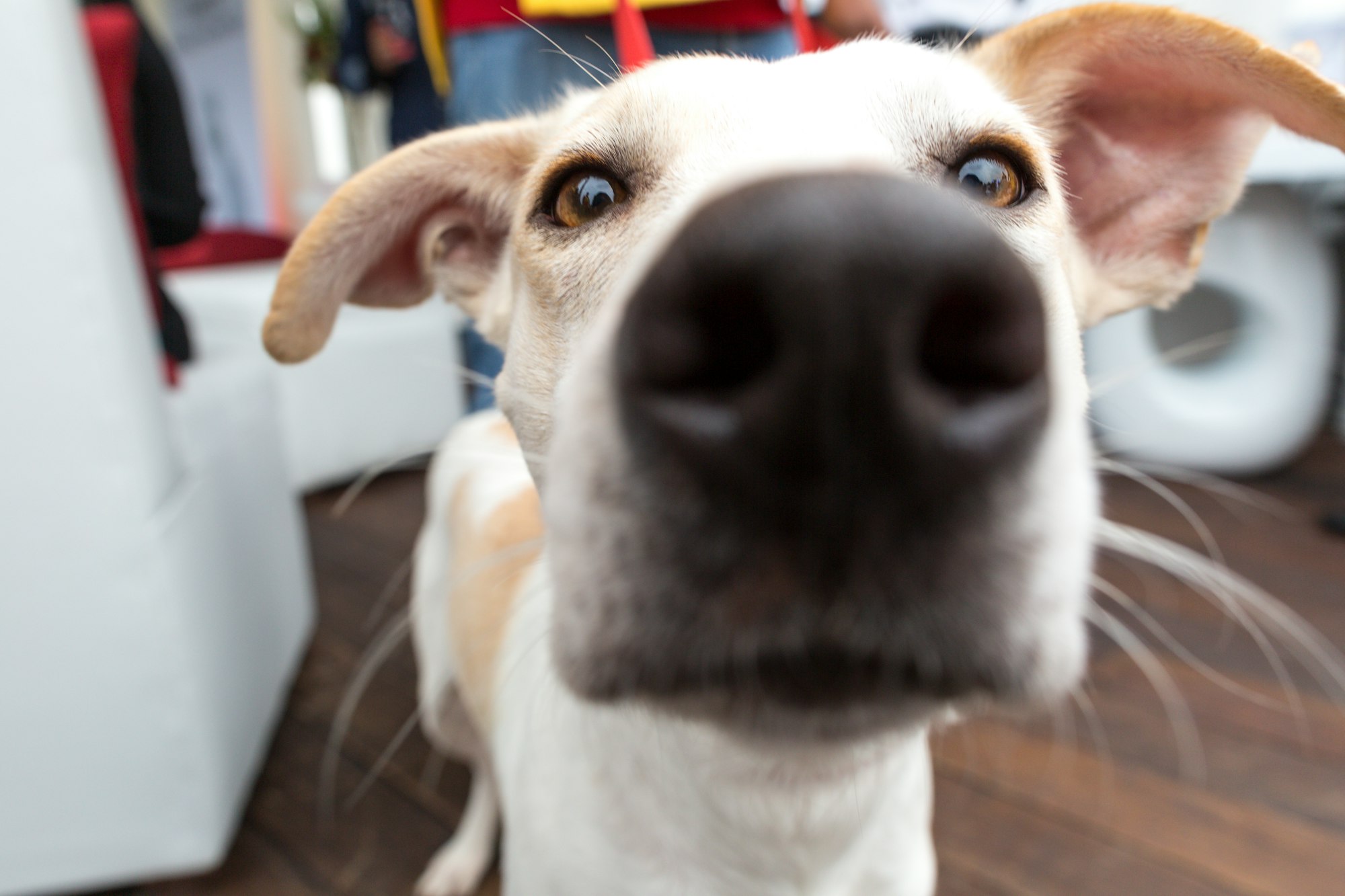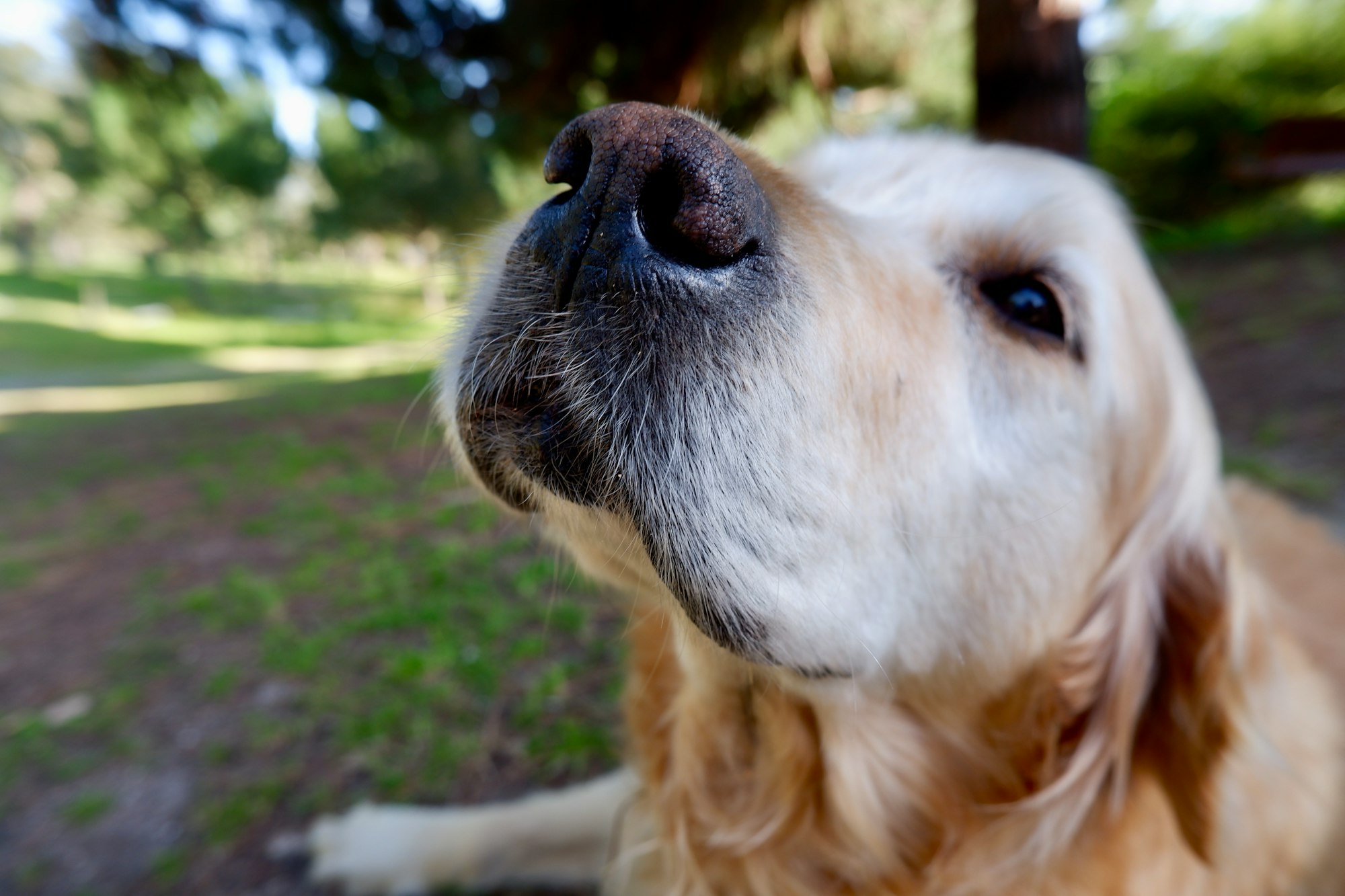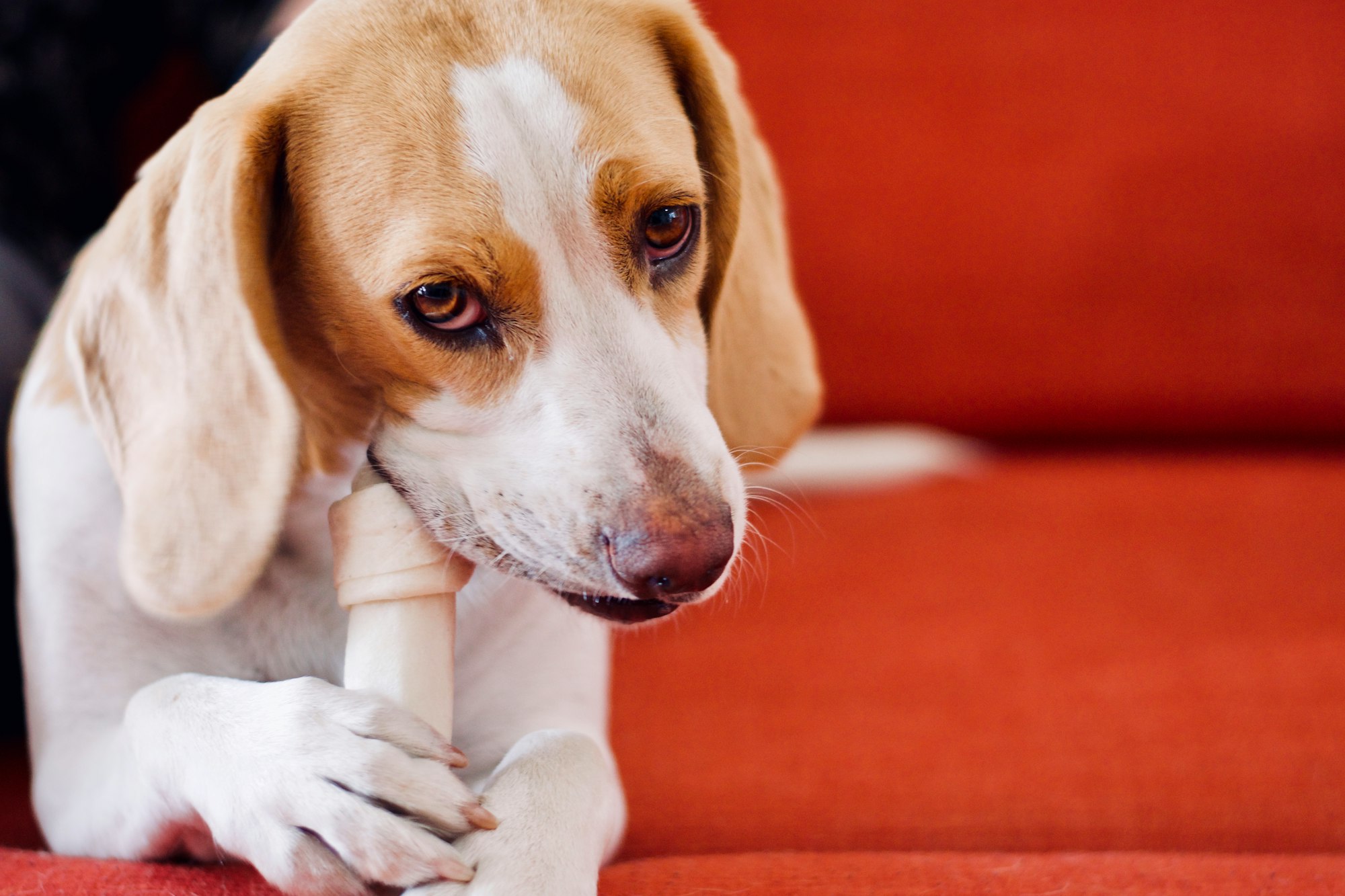If you are a dog owner, you know how important it is to keep an eye on your furry friend's health. One of the most common health problems that dogs face is a runny nose. A runny nose in dogs is not only uncomfortable for your pet but can also indicate an underlying health issue.
A runny nose in dogs is a condition where there is an excessive discharge of mucus from the nostrils. It is also known as rhinorrhea. It can be a sign of a mild illness, such as a cold, or a more severe condition, such as pneumonia. A runny nose can occur in dogs of any age or breed and can be accompanied by other symptoms such as sneezing, coughing, lethargy, loss of appetite, watery eyes, and fever. If your dog has a runny nose, it is essential to seek veterinary attention to identify the underlying cause and begin appropriate treatment.
In this article, we will explore the causes, symptoms, prevention, and treatment of a dog’s runny nose.
What causes a dog's runny nose?
There are several reasons why your dog may have a runny nose. Some of the most common causes include:
Allergies: Just like humans, dogs can also be allergic to various substances. These allergens can trigger an immune response in the body, resulting in symptoms such as a runny nose. Common allergens that can affect dogs include pollen, dust mites, mold, and certain foods.
Infections: Bacterial and viral infections can cause a dog's nose to run. Some of the most common infections that affect dogs include kennel cough, distemper, and parainfluenza. These infections can also cause other symptoms such as coughing and sneezing.
Nasal Tumors: In rare cases, a runny nose in dogs can be caused by tumors in the nasal passages. These tumors can be benign or malignant and can cause symptoms such as nasal discharge, sneezing, and difficulty breathing.
Foreign Objects: Foreign objects such as grass, seeds, or small toys can get stuck in the nasal passage, leading to a runny nose in dogs.
Dental Problems: Dental problems such as gum disease or tooth abscesses can cause a runny nose. This is because the roots of the teeth are located close to the nasal passages. When there is an infection in the teeth, it can spread to the nasal passages, causing a runny nose.

What are the symptoms of a dog's runny nose?
The symptoms of a dog's runny nose include:
- Excessive discharge of mucus from the nostrils
- Sneezing
- Coughing
- Watery eyes
- Difficulty breathing
- Loss of appetite
- Lethargy
- Swollen lymph nodes
How is a dog's runny nose diagnosed?
A dog's runny nose can be diagnosed through a physical examination by a veterinarian. The vet will examine the dog's nasal passages, check for any signs of inflammation, and take a sample of nasal discharge for testing if necessary.
In addition to the physical examination, the vet may also ask about the dog's symptoms, such as the duration and frequency of the runny nose, any coughing or sneezing, and any other accompanying symptoms. They may also ask about the dog's recent activities and exposure to other dogs or environments. Based on the examination and test results, the vet can diagnose the cause of the runny nose and recommend appropriate treatment, such as antibiotics for bacterial infection or antihistamines for allergies. They may also recommend some tests such as blood tests, X-rays, or a nasal swab to determine the cause of the runny nose.
How is a dog's runny nose treated?
The treatment for a dog's runny nose depends on the underlying cause. Some most common treatment options include:
Home Remedies: For mild cases of a runny nose in dogs, you can try some home remedies to alleviate the symptoms. These remedies include:
- Keeping your dog warm and comfortable
- Ensuring your pet gets enough rest
- Offering plenty of fluids to keep your dog hydrated
- Using a humidifier to moisten the air and make it easier for your pet to breathe
- Adding a few drops of eucalyptus oil to a humidifier to help clear nasal passages
- Encourage your dog to breathe in steam by running a hot shower or using a humidifier.
- Use a saline solution to clean your dog's nasal passages.
- Add a small amount of honey to your dog's food to help soothe the throat and reduce coughing.

Medications for Dog Runny Nose
If your dog has a runny nose, it can be a sign of an underlying health issue such as an infection or allergies. In addition to addressing the underlying cause, medications can also help alleviate the symptoms of a dog's runny nose. Remember to talk to your vet before giving any of these medications.
Here are some of the medications that are commonly used to treat dog runny nose:
Antibiotics: If your dog's runny nose is caused by a bacterial infection, your veterinarian may prescribe antibiotics to treat the infection. Some common antibiotics used to treat bacterial infections in dogs include amoxicillin, doxycycline, and cephalexin.
Antihistamines: If your dog's runny nose is caused by allergies, your veterinarian may prescribe antihistamines to alleviate the symptoms. Antihistamines work by blocking the release of histamines, which cause allergy symptoms such as runny nose, itching, and sneezing. Some common antihistamines used for dogs include diphenhydramine, loratadine, and cetirizine.
Decongestants: Decongestants are medications that help reduce the swelling of the nasal tissues and relieve congestion. They can help treat a dog's runny nose caused by allergies or a respiratory infection. However, decongestants should only be used under the guidance of a veterinarian, as they can have side effects such as increased heart rate and blood pressure. Some common decongestants used for dogs include pseudoephedrine and phenylephrine.
Steroids: Steroids are medications that help reduce inflammation in the body. They can be used to treat a dog's runny nose caused by allergies or respiratory inflammation. However, steroids should only be used under the guidance of a veterinarian, as they can have side effects such as increased thirst and appetite, and can suppress the immune system. Some common steroids used for dogs include prednisone and dexamethasone.
Nasal Drops or Sprays: Nasal drops or sprays can help treat a dog's runny nose caused by allergies or respiratory infections. They work by moisturizing and soothing the nasal passages, which can reduce inflammation and alleviate symptoms such as runny nose and sneezing. Some of the most common nasal drops or sprays used for dogs include saline drops and steroid nasal sprays.
It's important to note that you should always consult with a veterinarian before administering any medication to your dog. Dosage, frequency, and duration of treatment can vary based on the underlying cause of the runny nose and your dog's individual health needs. Additionally, some medications may not be safe for certain breeds or dogs with pre-existing health conditions.
In addition to medication, there are other ways to help alleviate a dog's runny nose, such as providing humidified air, keeping your dog well-hydrated, and avoiding exposure to environmental allergens. With proper care and treatment, your dog's runny nose can be effectively managed and treated.

Surgery for Dog Runny Nose
If your dog has a persistent runny nose that is not responding to medication or other forms of treatment, surgery may be considered as an option. Here are some of the surgical procedures that may be used to treat a dog's runny nose:
Rhinoscopy: Rhinoscopy is a minimally invasive surgical procedure that involves inserting a small camera into the dog's nostrils to visualize the nasal passages. This allows the veterinarian to identify any abnormalities or foreign objects that may be causing the dog's runny nose. In some cases, the veterinarian may be able to remove the object or correct the abnormality during the procedure.
Nasal Cavity Flush: A nasal cavity flush is a surgical procedure that involves flushing out the dog's nasal passages with a saline solution. This can help remove any foreign objects, mucus, or pus that may be causing the dog's runny nose. The veterinarian may use a catheter to administer the saline solution and flush out the nasal passages.
Polyp Removal: Polyps are growths that can occur in the nasal passages and cause a dog's runny nose. If medication or other forms of treatment are not effective in managing the symptoms, surgery may be needed to remove the polyps. The veterinarian may use a rhinoscope to visualize the nasal passages and remove the polyps with forceps or a laser.
Tumor Removal: If a tumor is causing the dog's runny nose, surgery may be needed to remove the tumor. The type of surgery will depend on the location and size of the tumor. The veterinarian may use a rhinoscope to visualize the tumor and remove it with forceps or a laser. In some cases, more extensive surgery may be needed to remove the tumor.
It's important to note that surgery for a dog's runny nose is typically considered a last resort after other forms of treatment have been tried. Surgery can be expensive and may carry risks, such as bleeding, infection, and anesthesia complications. Additionally, the underlying cause of the runny nose may not be resolved with surgery, and further treatment may be needed. If you are considering surgery for your dog's runny nose, it's important to discuss the potential risks and benefits with your veterinarian. They can help you determine if surgery is the best option for your dog's individual health needs.
How to Prevent a Dog Runny Nose
A runny nose is a common problem in dogs that can be caused by a variety of factors, including allergies, infections, and other health conditions. While it may not always be possible to prevent a dog from developing a runny nose, there are some steps that pet owners can take to reduce the risk of this issue occurring.
Here are some tips for preventing a dog's runny nose:
Maintain a Clean Environment: Keeping your dog's environment clean can help reduce the risk of infections and other health conditions that can lead to a runny nose. This includes regularly cleaning and disinfecting your dog's food and water bowls, bedding, and toys. Additionally, regular grooming, including brushing and bathing, can help keep your dog's coat and skin healthy.
Practice Good Hygiene: Practicing good hygiene is important for preventing the spread of infections that can cause a dog's runny nose. This includes regularly washing your hands before and after handling your dog, as well as keeping your dog away from other animals that may be sick.
Maintain a Healthy Diet and Exercise Routine: A healthy diet and regular exercise can help strengthen your dog's immune system and reduce the risk of health conditions that can cause a runny nose. Feeding your dog a balanced diet that includes high-quality proteins, healthy fats, and essential vitamins and minerals can help support their overall health. Regular exercises, such as daily walks or playtime, can help keep your dog physically and mentally healthy.
Address Allergies: Allergies can cause a dog runny nose, so it's important to identify and address any allergy triggers. This may involve working with a veterinarian to determine the specific allergens that are causing your dog's symptoms, and then taking steps to reduce their exposure to these triggers.
Regular Veterinary Check-Ups: Regular veterinary check-ups can help identify and address health conditions that can cause a runny nose in dogs. During these visits, your veterinarian can perform a physical examination and recommend any necessary preventive or treatment measures.
By following these tips, pet owners can help reduce the risk of a dog's runny nose and promote their dog's overall health and well-being.
Conclusion
A runny nose in dogs is a common health problem that can be caused by various factors such as infections, allergies, and foreign objects. While it may not always be possible to prevent a runny nose, taking preventive measures and seeking treatment promptly can help your pet recover quickly.
FAQs
1. How long does a dog's runny nose last?
A: The duration of a dog's runny nose depends on the underlying cause. Mild cases may resolve within a few days, while more severe cases may require several weeks of treatment.
2. Can a dog’s runny nose be a sign of a serious illness?
A: Yes, a dog's runny nose can be a symptom of a severe illness, such as pneumonia or canine influenza. It is essential to seek veterinary attention if you suspect that your dog's runny nose is caused by a more severe condition.
3. Can I give my dog human over-the-counter medication for a runny nose?
A: It is not recommended to give your dog human medication without consulting your veterinarian first. Some human medications, such as acetaminophen or ibuprofen, can be toxic to dogs.
4. Can allergies cause a dog's runny nose?
A: Yes, allergies can cause a dog's runny nose. It is essential to identify the allergen and reduce exposure to it or seek treatment for the allergy.
5. Can I prevent my dog from getting a runny nose?
A: While it is impossible to prevent all causes of a runny nose, certain preventive measures can reduce the risk of infection, such as ensuring your dog is up to date on vaccinations, avoiding contact with sick dogs, and maintaining good hygiene.
Get more expert advice on pet-parenting by visiting the Off Leash blog at TryFi.com.
TryFi's The Fi Dog Collar is a must-have for any pet parent, it's a GPS tracking collar that helps you keep tabs on your dog's location, activity, and sleep patterns, and alerts you if they escape your backyard. Try the Fi Dog Collar today!

